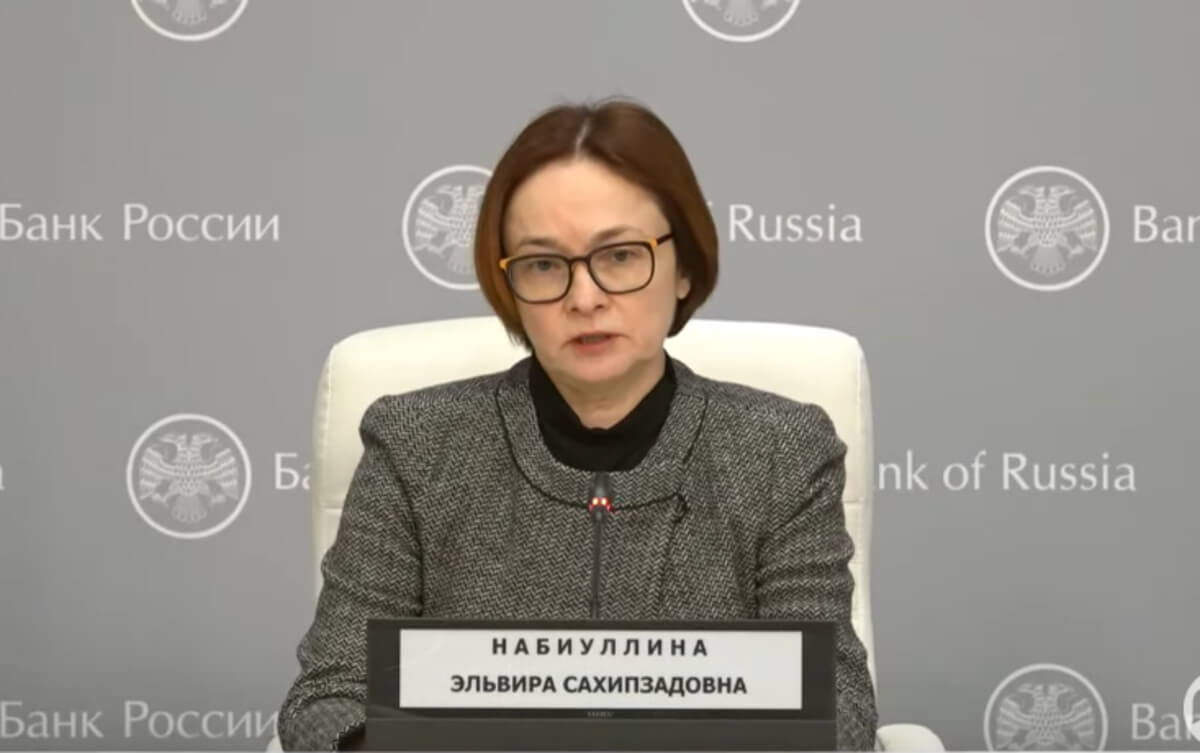The Russian Central Bank, under the leadership of Governor Elvira Nabiullina, is actively engaging in discussions regarding the potential utilization of central bank digital currencies (CBDCs) in foreign trade transactions. This strategic move comes amid a global landscape that is witnessing the convergence of financial technology and geopolitical considerations.
Russian central bank touts the use of CBDC in foreign trades
While expressing opposition to the use of cryptocurrencies in domestic transactions, Nabiullina revealed that Russia is open to exploring the application of digital currencies in cross-border payments. Nabiullina emphasized that the Bank of Russia is actively exploring the integration of CBDCs and cryptocurrencies in cross-border transactions, especially with friendly nations.
Notably, she highlighted that the digital ruble, which is Russia’s CBDC, has been designed with a feature that facilitates seamless integration with other CBDCs, showcasing a forward-looking approach to financial innovation. Despite expressing reservations about domestic use, Nabiullina reiterated Russia’s willingness to consider the application of cryptocurrencies in the context of foreign trade. She made it clear that the country stands against domestic payments involving cryptocurrencies.
However, she acknowledged the potential benefits of utilizing cryptocurrencies in international trade. Discussions are currently underway in the State Duma to draft a bill that would regulate and enable such usage, underscoring the country’s commitment to exploring the evolving landscape of digital currencies. This approach aligns with signals from Moscow officials, who have previously indicated receptiveness to incorporating cryptocurrencies into foreign trade.
In April 2023, Russia’s deputy finance minister, Alexey Moiseev, disclosed plans to establish a committee responsible for issuing permits to entities engaging in crypto-related foreign trade transactions. The move, however, has raised concerns among some Western leaders and politicians, who fear that Russian entities might exploit cryptocurrencies to evade sanctions.
Exploring the stance of cryptocurrencies
In response to these concerns, there have been calls for vigilance within the crypto industry. Some Western leaders, including 2022 U.S. presidential candidate Hillary Clinton, have advocated for a comprehensive blockade of all Russian crypto users. This underscores the geopolitical implications and the evolving role that digital currencies may play in shaping international relations.
In the interview, Nabiullina acknowledged the challenges posed by the latest U.S. sanctions and the looming threat of secondary sanctions. She described these developments as creating “certain complications of cross-border settlements with many countries.” Despite these challenges, she emphasized that they should serve as a catalyst for Russia and its allies to intensify efforts in developing alternative payment methods.
This recognition highlights the potential of digital currencies to offer viable alternatives in navigating economic sanctions and cross-border financial transactions. The Russian Central Bank, under the guidance of Governor Elvira Nabiullina, is actively exploring the integration of central bank digital currencies and cryptocurrencies in foreign trade.
While the country remains cautious about domestic cryptocurrency use, there is a notable openness to exploring their application in international trade. These developments underscore the ongoing evolution of digital currencies within the geopolitical landscape and the pursuit of alternative payment methods as nations respond to economic sanctions.





